The Night of Qanun
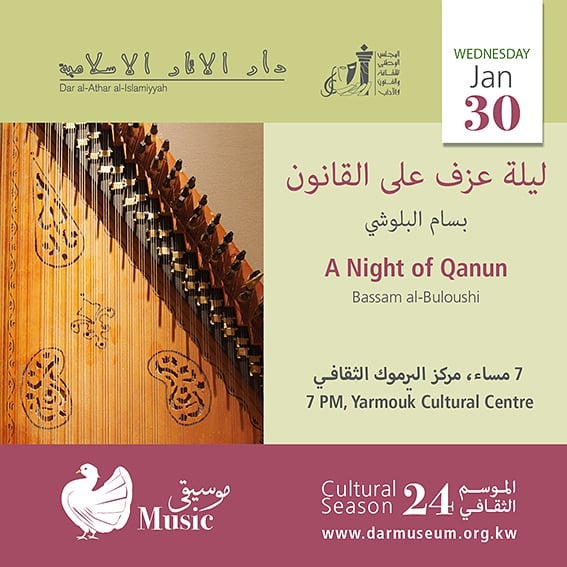
“A Night of Qanun” performed by Dr. Bassam al-Bloushi Dr. Bassam Al-Baloushi has studied music and learned the piano, Oud and Qanun since childhood. He left the medical school in Ireland and majored in music as it is his main passion and joined the Higher Institute of Musical Arts in Kuwait. He graduated with an […]
The Violin Sings Kuwait
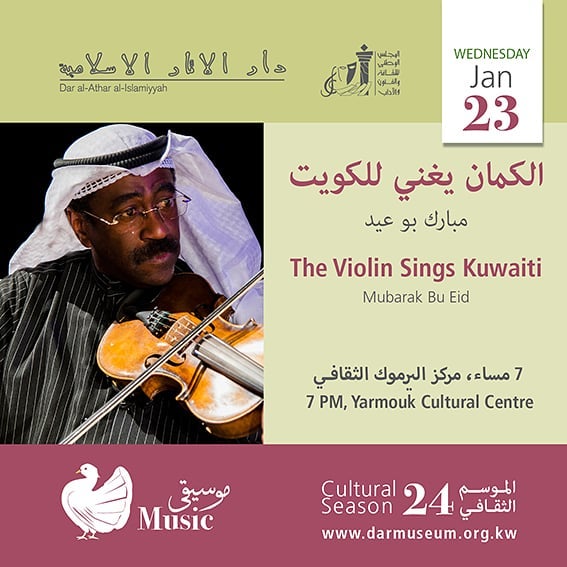
“Violin sings Kuwaiti” performed by violinist Mubarak Bu Eid. Mubarak Bu Eid presents a tribute evening for Kuwaiti classical music. He began to play the violin at the age of 16. He has performed in many concerts and Music Nights which dazzled the audience and attracted the lovers of Kuwaiti art
Kuwait Jazz Collective
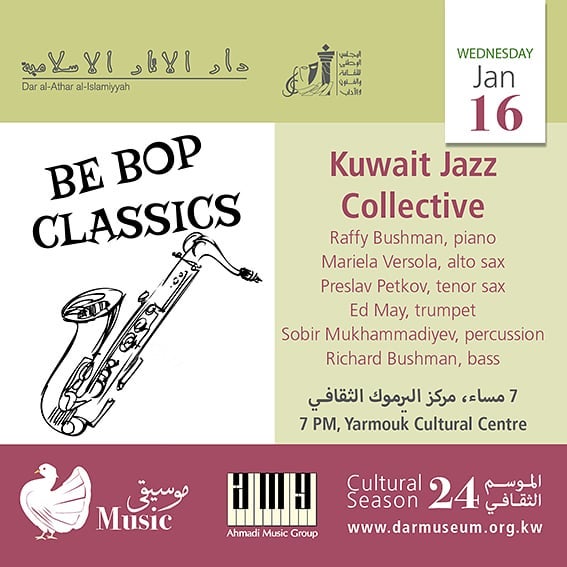
“Be-Bop Classics” Music Night performed by Kuwait Jazz Collective Group. Be-Bop developed as the younger generation of jazz musicians expanded the creative possibilities of jazz beyond the popular, dance-oriented swing style with a new “musician’s music” that was not as danceable and demanded close listening. As bebop was not intended for dancing, it enabled the […]
“An evening of Folklore”
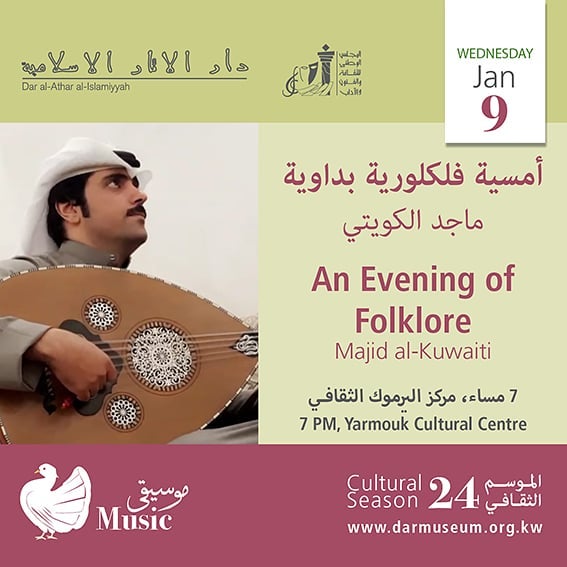
“An evening of Folklore” performed by Majed al-Kuwaiti. The concert will be performed by a group of artists specialized in Bedouin heritage and folk music. This evening is a special contribution of young artists in order of singing and developing the original Bedouin arts.
Samiriyat
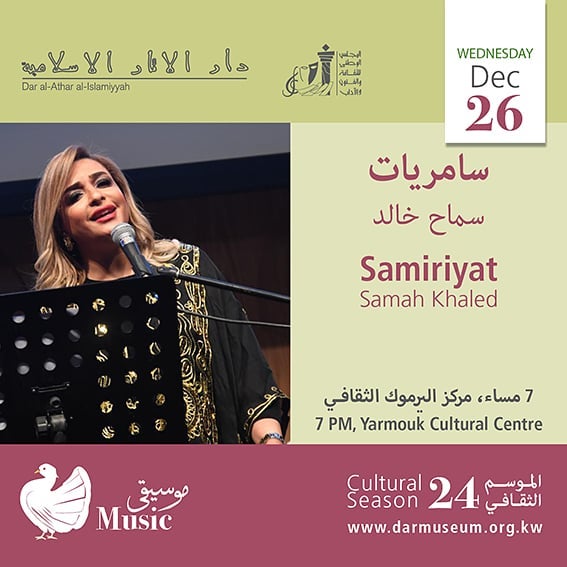
A traditional Khaliji night entitled “Samiriyat” performed by the Vocalist Samah Khaled. “Samri” is a folkloric music and dance native to Najd and common as a musical style in Khaliji music. It involves singing poetry while the daff drum is being played often while two rows of men, seated on the knees, sway and clap […]
A Night at the Opera
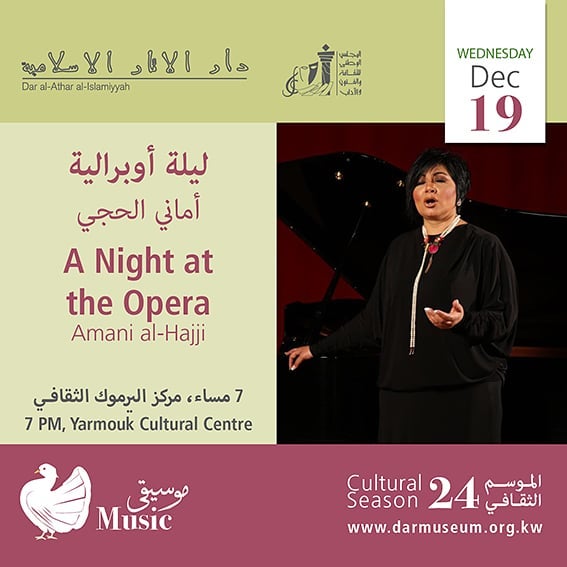
“A Night at the Opera” performed by Amani El Hajji. Amani Al-Hajji is the first opera singer in Kuwait and the Arabian Gulf region and is a professor at the Higher Institute of Musical Arts. She was trained by top musicians in Kuwait, where she has strong and high voice potential, and she has performed […]
Bahraini Music
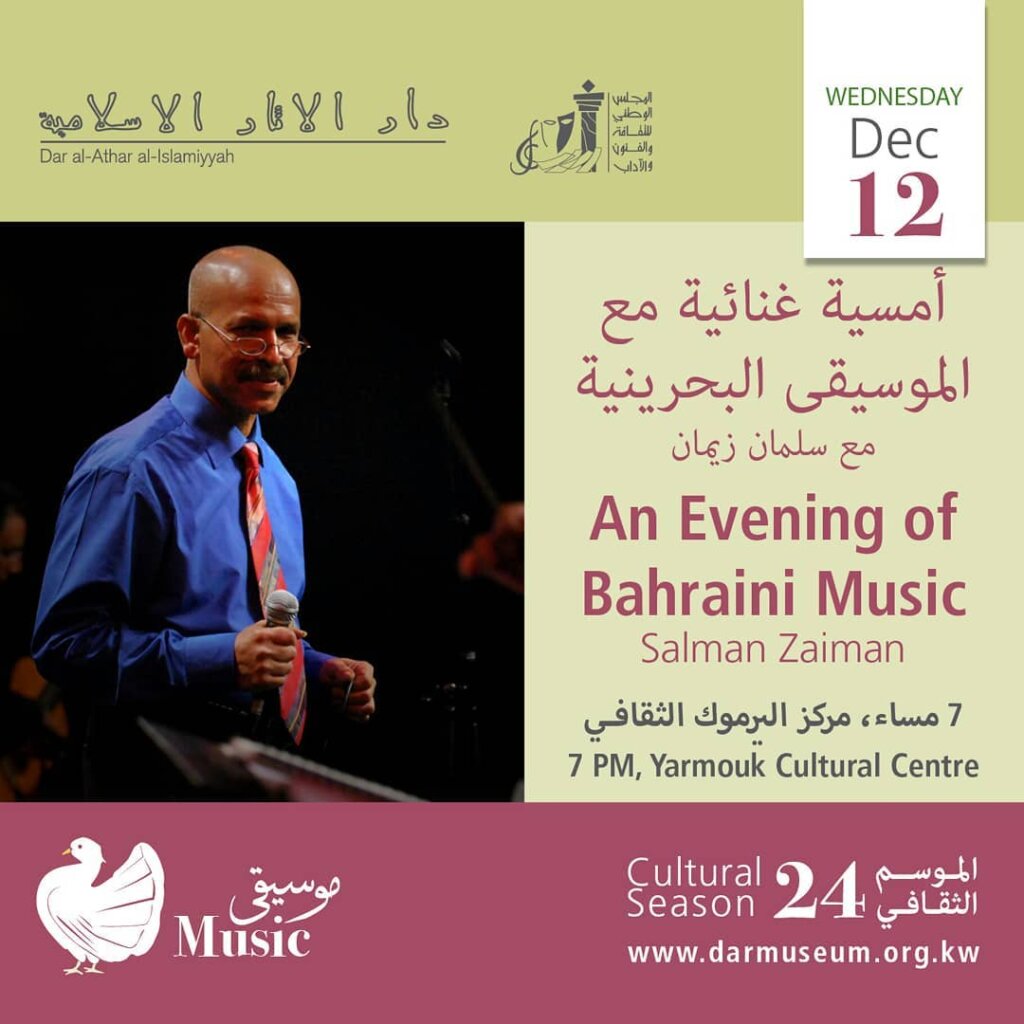
“Evening of Bahraini Music” performed by Salman Zaiman The Bahraini singer Salman Zaiman is one of the most prominent stars in the Gulf. He admires his art. He has many songs, that have remained popular for some time, such as “ya muqlat Aini”, “ Haifa”, ‘Alta’er Alhaiman” and “Umm Aljada’el” etc. In addition he sings […]
Hubban
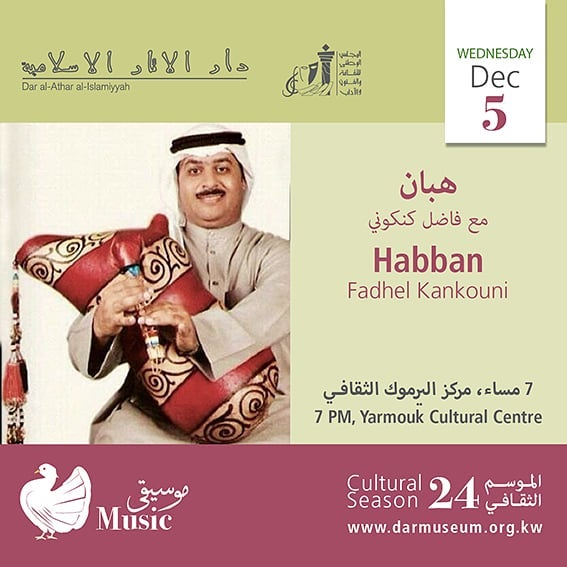
“Habban” music night performed by Fadhel Kankouni The habban or “bagpipe” is a musical instrument with reed pipes that are sounded by the pressure of wind emitted from a bag squeezed by the player’s arm.
Kuwaiti Rhythms
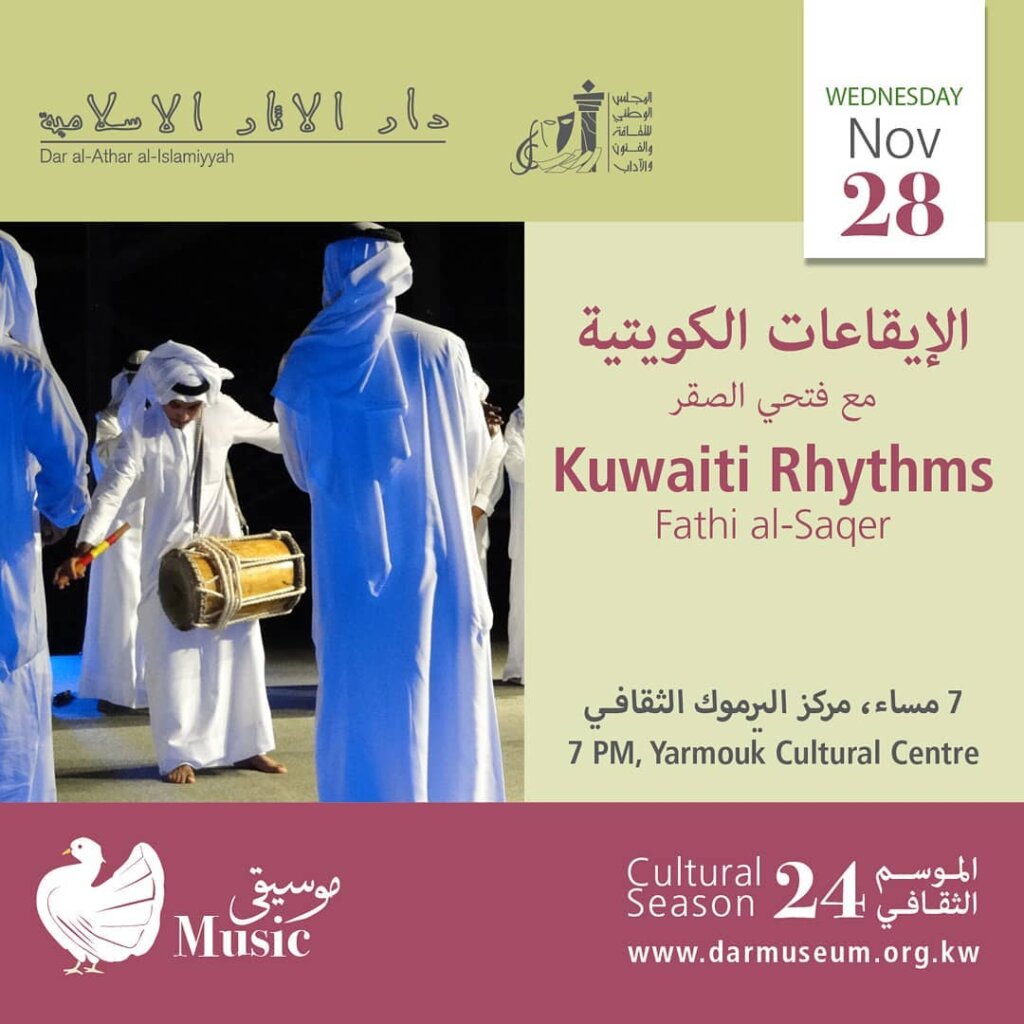
“Kuwaiti Rhythm” performed by Fathi Al-Saqer Fathi Abdul Hameed Al-Saqer is specialized in the folk Kuwaiti songs and Rhythms and. At the age of fourteen he was interested in the Samri, Al-Naqazi and Al-Khomari music styles. He began to play and sing for those ancient arts and remained faithful to his country’s heritage. The art […]
Women and War
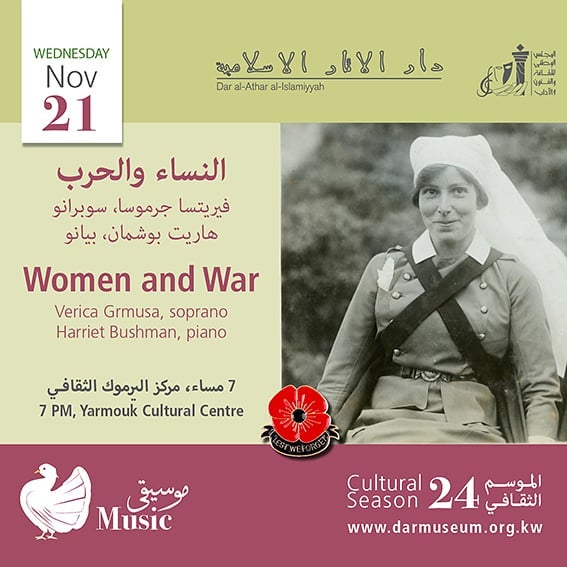
“Women and War” performed by Verica Grmusa & Harriet Bushman This recital marks the centenary of the end of World War One. It tells the stories of war through the music composed across the globe, but also across different times in history. While it starts with ‘War to End All Wars’, the recital unfolds threading […]



